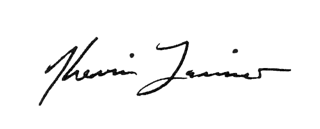Questions That Have No Answers
Eighty-four issues ago I wrote my first editor’s note for this magazine. Like this issue, the November/December 2009 edition was dedicated to MFA programs, and in this space I wrote about how I had been reminded of the seasonal rhythms of student life while watching my daughter get ready for her first day of prekindergarten. As I write this my daughter is getting ready for her first day of college. And I am sorting through a rather full bag of emotions, including pride, gratitude, worry, and at least a couple of others, as yet undefined. While I marvel at her achievements and honor the strong young woman she has become, a part of me really wants that little girl back. So when I tell you I have tried to make the past few months of editing and production pass more slowly, you will understand it is not only because this is our biggest issue of the year and requires much care, planning, patience, and attention. “I don’t know what time is,” writes featured poet Jane Hirshfield in the poem “A Day Is Vast,” originally published in 2011 and collected in her new book, The Asking: New and Selected Poems. “You can’t ever find it. / But you can lose it.” Just as I did during that autumn fourteen years ago, I find in this magazine much to affirm my feelings and allay my fears. “I just love working with writers because of who we are: people who seek meaning, who seek to make meaning, the soulfulness of the writer,” author and editor Jamia Wilson tells Vivian Lee in this issue’s installment of Agents & Editors. The soulfulness of the writer shines in our cover profile by Destiny O. Birdsong, who describes Dark Days: Fugitive Essays, the extraordinary exploration of race, legacy, and community by Roger Reeves, as “a product of love, a book that was forged in communities that challenged Reeves’s thinking in the same ways he seeks to challenge ours.” In his contribution to “Should I Stay or Should I Go? Letters From Six Writer-Mentors on the Choice to Pursue an MFA”, Mike McClelland writes, “My hope for you is that you give yourself the time to grow and the time to find what you love in your process.” Can we really ask for much more? I am grateful to all the writers and editors involved in making this issue, for their willingness to explore the many topics related to writing, community, and publishing—in short, the life of the writer—and for their courage to articulate, as Hirshfield calls poems, “responses to questions that have no answers.” The life of this writer, and father, is richer for it.








